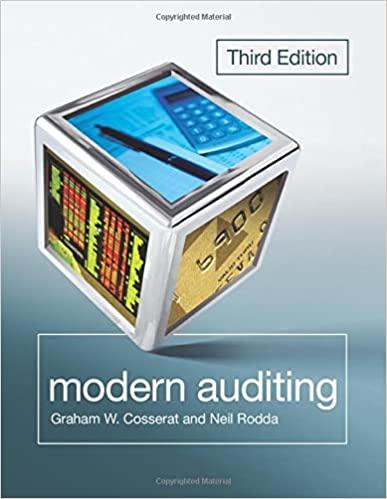Question
Fact Pattern 2 3D Printing spun off 100 percent of Subsidiary J to shareholders as a tax-free distribution in 2011. 3D Printings 2010 federal tax
Fact Pattern 2 3D Printing spun off 100 percent of Subsidiary J to shareholders as a tax-free distribution in 2011. 3D Printings 2010 federal tax return included Subsidiary J. As part of the spinoff, 3D Printing entered into a tax-sharing agreement in which Subsidiary J indemnified 3D Printing for any incremental tax payments due for the pre-spin periods arising from the ultimate resolution of tax positions directly related to Subsidiary J. At the time of the spin-off, 3D Printing accrued $10 million of indemnification receivables. Recording the indemnification receivables is deemed appropriate by 3D Printing because it represents a contractual recovery of a portion of the potential loss associated with its tax uncertainties, similar to an insurance contract. 3D Printing also concluded that the accounting for the indemnification receivables should (1) follow the same measurement accounting model as the related liability and (2) be adjusted accordingly for any adjustments to the recorded liability, excluding any concerns about the collectibility of the receivable. In addition, the indemnification receivables were not netted against the related unrecognized tax benefit (UTB) because the criteria for offset was not met as outlined in ASC 210-20, Balance Sheet: Offsetting. During 2012, the IRS audited the 2010 tax return and concluded the examination in Q4 2012. On the basis of the terms of the IRS settlement, 3D Printing was required to remit a cash payment to the IRS of $6 million, which consisted of $4.9 million for the settlement of tax matters and $1.1 million of interest. According to the tax-sharing agreement, Subsidiary J owed 3D Printing $4 million related to the IRS settlement and remitted that amount in Q4 2012. Since all the UTPs of J have been resolved, the remaining indemnification receivable and UTB of $6 million were both written off to the income statement, resulting in no impact to net income.
Required:
1. Assuming 3D Printing did not classify Subsidiary J as a discontinued operation, on what income statement line item(s) (operating expense or income tax expense) should the reversal of the indemnification receivable and UTB each be presented?
2. Assuming 3D Printing classified Subsidiary J as a discontinued operation, in what income statement item(s) (continuing operations or discontinued operations) should the reversal of the indemnification receivable and UTB each be presented?
Please use FASB codification
Step by Step Solution
There are 3 Steps involved in it
Step: 1

Get Instant Access to Expert-Tailored Solutions
See step-by-step solutions with expert insights and AI powered tools for academic success
Step: 2

Step: 3

Ace Your Homework with AI
Get the answers you need in no time with our AI-driven, step-by-step assistance
Get Started


